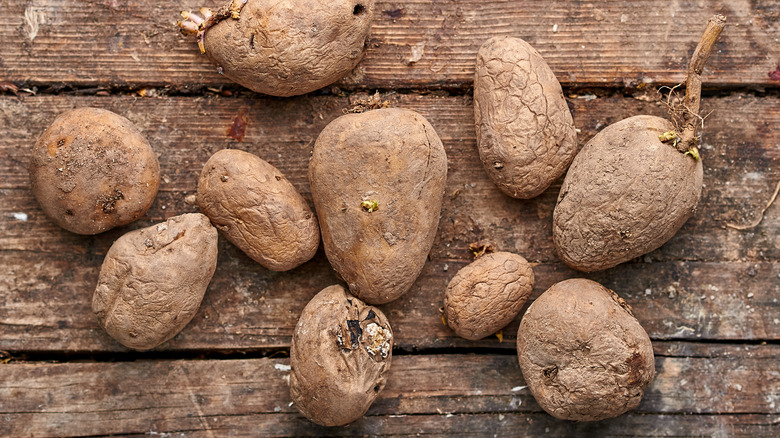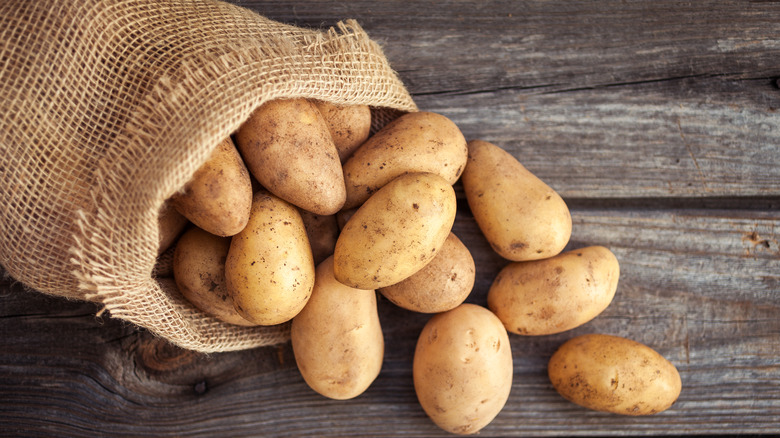What To Do With Wrinkled Potatoes
Wrinkled, shriveled, and dried are definitely not the markers of a fresh potato. Every now and again, you might find yourself saddled with these sad-looking spuds — the consequence of buying too many taters, or worse yet, improperly storing them. The question is, do wrinkles indicate a less fresh but still edible tater, or is a soft and withered potato a sign that it's destined for the compost bin?
With extended exposure to heat or direct sunlight, potatoes start to spoil, causing them to shrivel, sprout, and become green. Additionally, tubers also experience a change in texture and taste, morphing from firm and sweet to mushy and bitter — and can even start to smell slightly musty. However, the biggest transformation that occurs as a potato decays is that it begins to produce solanine.
While fresh spuds (much like other nightshade vegetables) contain trace amounts, levels of this toxic compound increase significantly with spoilage, posing a threat to health (via Mount Sinai). Depending on the quantity consumed, solanine can cause anything from an upset stomach to paralysis. Consequently, wrinkled potatoes should always be discarded.
While you can either toss the shriveled tubers into the compost bin or cut off the sprouts and replant them in your garden to give the old spuds a new purpose, you can also take precautions to prevent potatoes from ever spoiling in the first place.
Prevent wrinkling with better storage
Buying fresh, firm, and minimally blemished potatoes is a good starting point. However, correct storage is what will really keeps taters in tip-top shape. Although you can store spuds in the breathable paper sack they were packaged in, you can also place them in a basket. Whatever you do, don't keep them cooped up in a plastic bag or sealed container, as the lack of air circulation will speed spoilage.
As for where exactly the tubers are best kept, the pantry, cellar, or a dark cabinet can all work. The important thing is that a cool (but not cold) temperature is maintained. Naturally, this means that fridge storage is out of the question, unless the potatoes have already been peeled, cut, or cooked. That said, there's no need to wash them until you're ready to use them, as this just encourages the growth of unwanted bacteria and fungus, which can also lead to a potato's premature demise.
Lastly, be mindful of what you store with potatoes. Placing papery onions next to dusty spuds can cause the latter to go bad before they should. Evidently, when all the rules of proper storage are abided by, potatoes likely won't start to wrinkle for at least a month or two, giving you more time to make good use of them.

